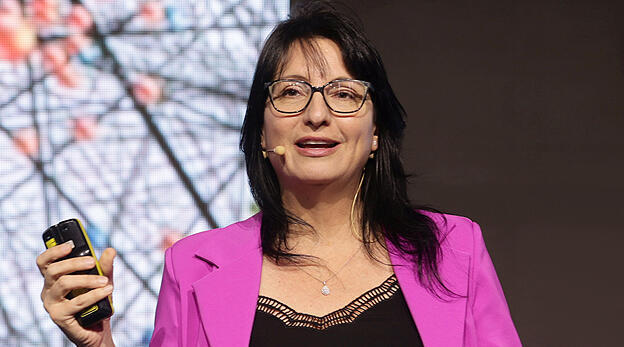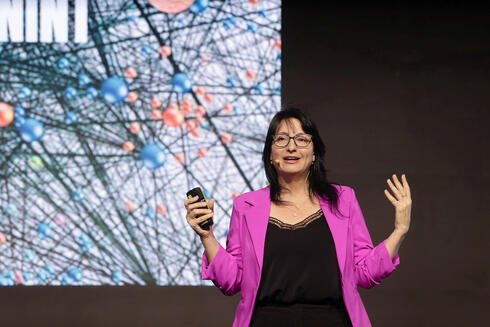
"Gaza would look like Dubai if the money that flowed there was not used for terrorism"
Dr. Shlomit Wagman, Global Chief Regulation and Compliance Officer at Rapyd, added that future funds going to Gaza from all over the world for reconstruction must be monitored to ensure they are not again used to finance terrorism
“On September 11, about half a million dollars was needed - not a huge amount of money, but enough to finance the massive operation that ended in disaster,” said Dr. Shlomit Wagman, Global Chief Regulation and Compliance Officer at Rapyd, during Calcalist’s Economy of Tomorrow event. Wagman previously served as the head of the Authority for the Prohibition of Money Laundering and Terrorism Financing, making her experience particularly relevant today, given the questions arising about financing terrorism and predicting financial modeling for the "day after" to prevent the funds that will be flowing into Gaza from being used to rebuild terror operations.
"To fund terrorism, money is needed, there must be trade in goods that mask the sources of funds, and a complex structure of companies is needed to move money. In recent years, crypto has also been used for this. A terrorist organization needs money, and therefore, its money flow must be stopped. If we think about Hamas, it has tens of thousands of operatives, infrastructure, weapons, and all of this requires funding," explains Wagman.
"So how can this funding be stopped? In Israel, there are many enforcement agencies and a network of connections. Israel has declared 21 organizations as terrorist entities, and money is taken from them through financial intelligence. The money tracking approach was developed to combat money laundering, and since 9/11, the strategy has been applied to financial sources of terrorism."
Wagman adds: "ISIS is an excellent case where a global coalition was formed to follow the money. I chaired one of the international working groups dealing with the issue. Similarly, today we need to think about what to do with Hamas. Two months ago, I was invited to the U.S. Senate to assist the U.S. government in developing means to combat this issue. My recommendations were primarily that the effort to mitigate terrorism should be global and not just Israeli. Iranian money does not flow into the Israeli economy. Qatari money also does not flow into our economy.
Related articles:
“Moreover, intelligence cooperation is needed among all global authorities. A month and a half ago, an international task force was established with 20 countries, and they have already identified sources in Europe and the U.S., tracing funds belonging to Hamas. Beyond that, Hamas should be declared a terrorist organization in other countries and its funds should be frozen. Let's not forget that Hamas's funding sources are diverse - Iran, Qatar, and they also have their own significant investment portfolios. They impose taxes, raise funds, and also own public companies, for example, in Turkey, and the Turkish government encourages them."
Regarding the future after the war, Wagman says, "Billions of dollars will be poured into Gaza in the future from around the world for reconstruction. It will happen - and then the question will be asked - how will the funds be used? Gaza would look like Dubai if the money that flowed there was not used for terrorism. To address this issue, we are developing the 'day after' plan within a team of experts at Harvard and presenting it to the government.
“We must ensure that there is no cash flow in Gaza, because this will flow to Hamas. The Israeli fintech industry has created technology that can be implemented. Among other things, we draw inspiration from Rapyd’s model of providing payment services to international organizations for the transfer of funds to refugees in various countries. It is important to ensure there are monitoring mechanisms and no waste. It is crucial to use technological means such as identification and transparency in checking the money trail and also work within transparent frameworks."
